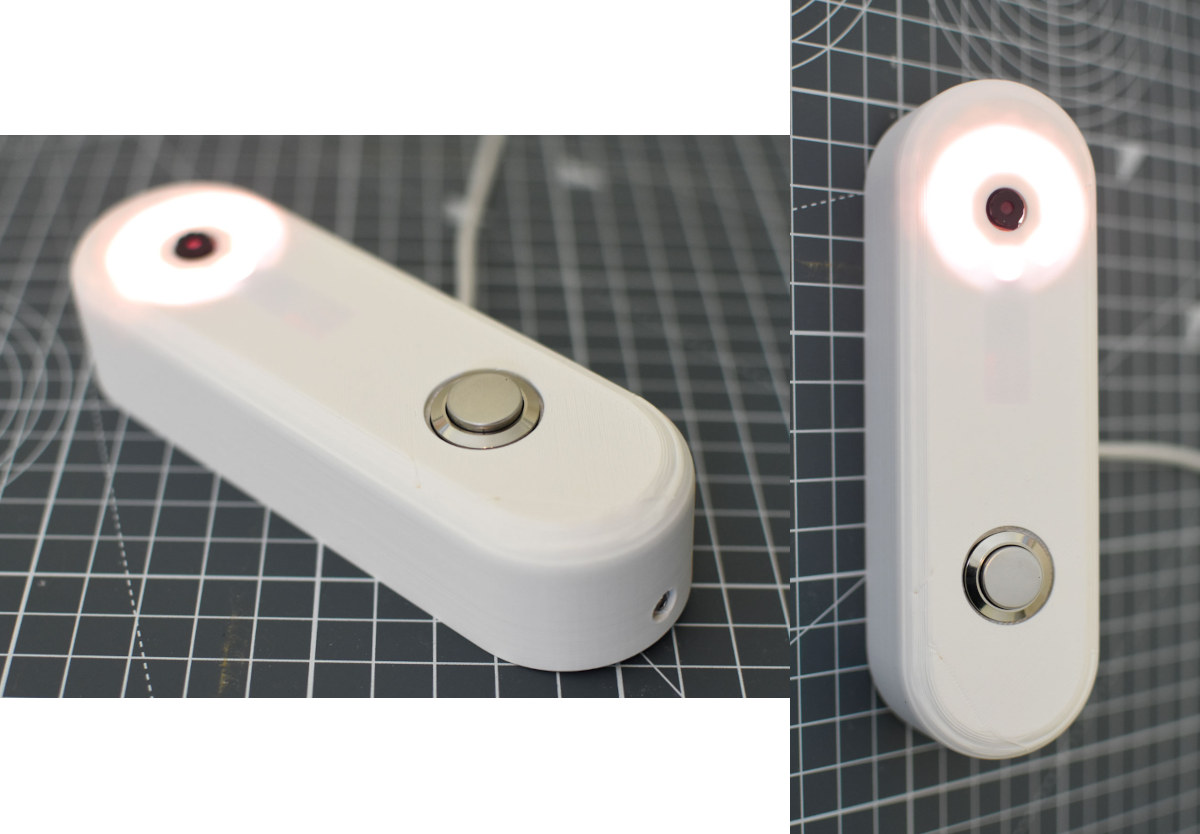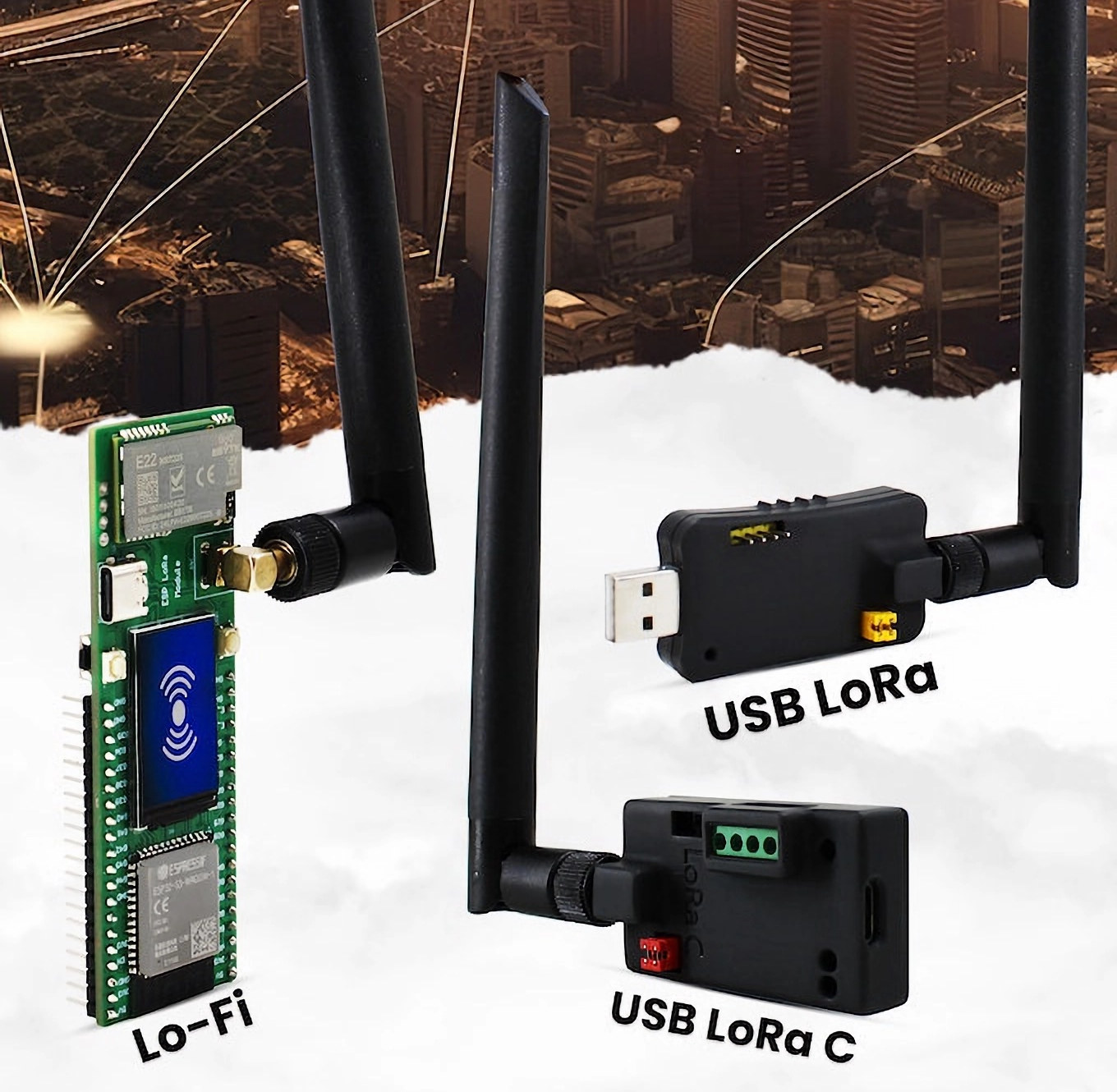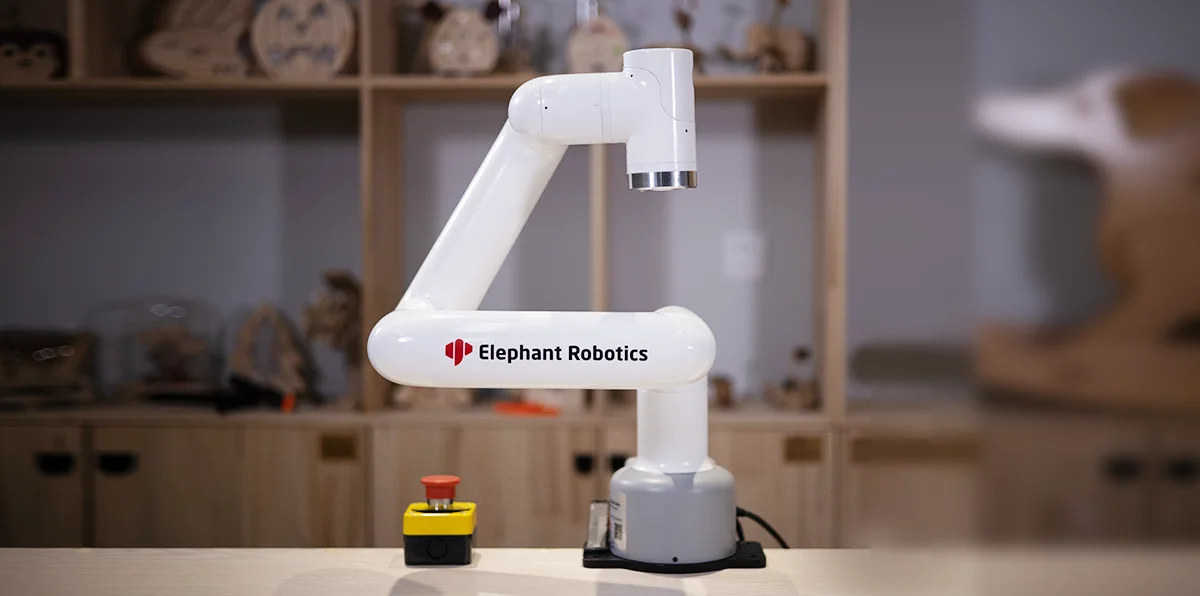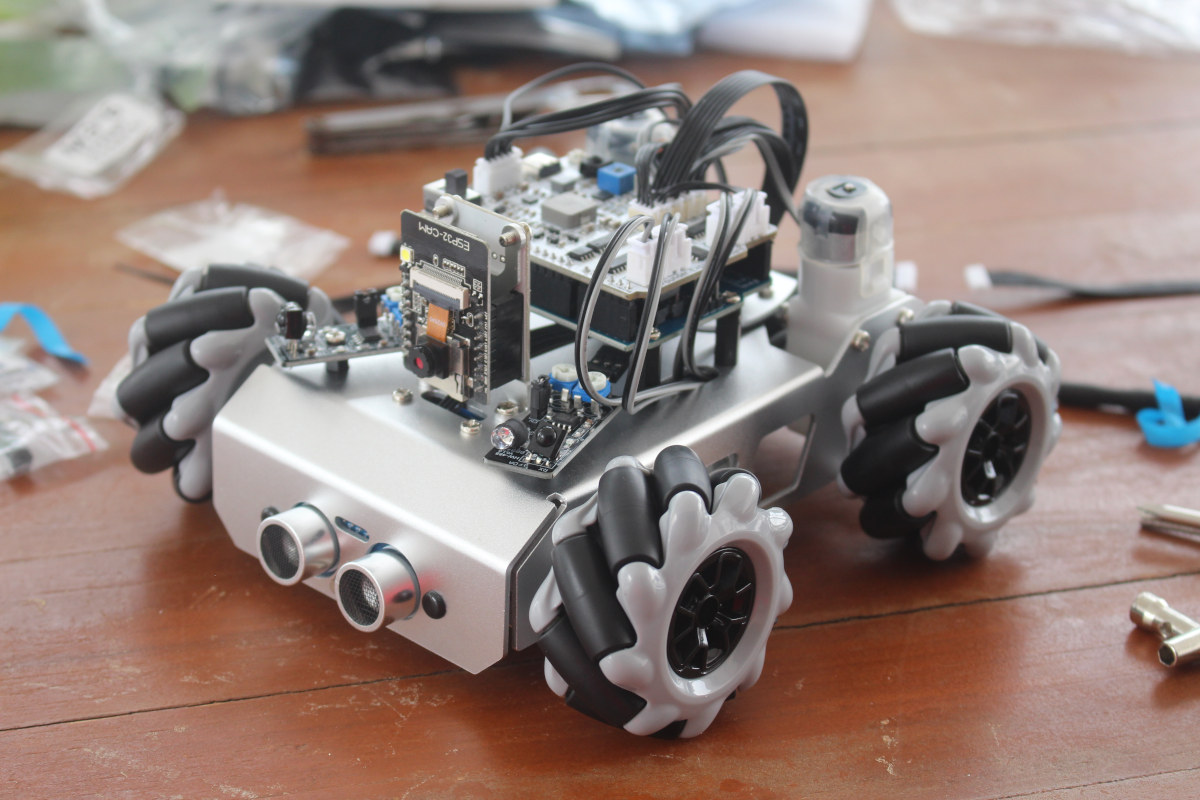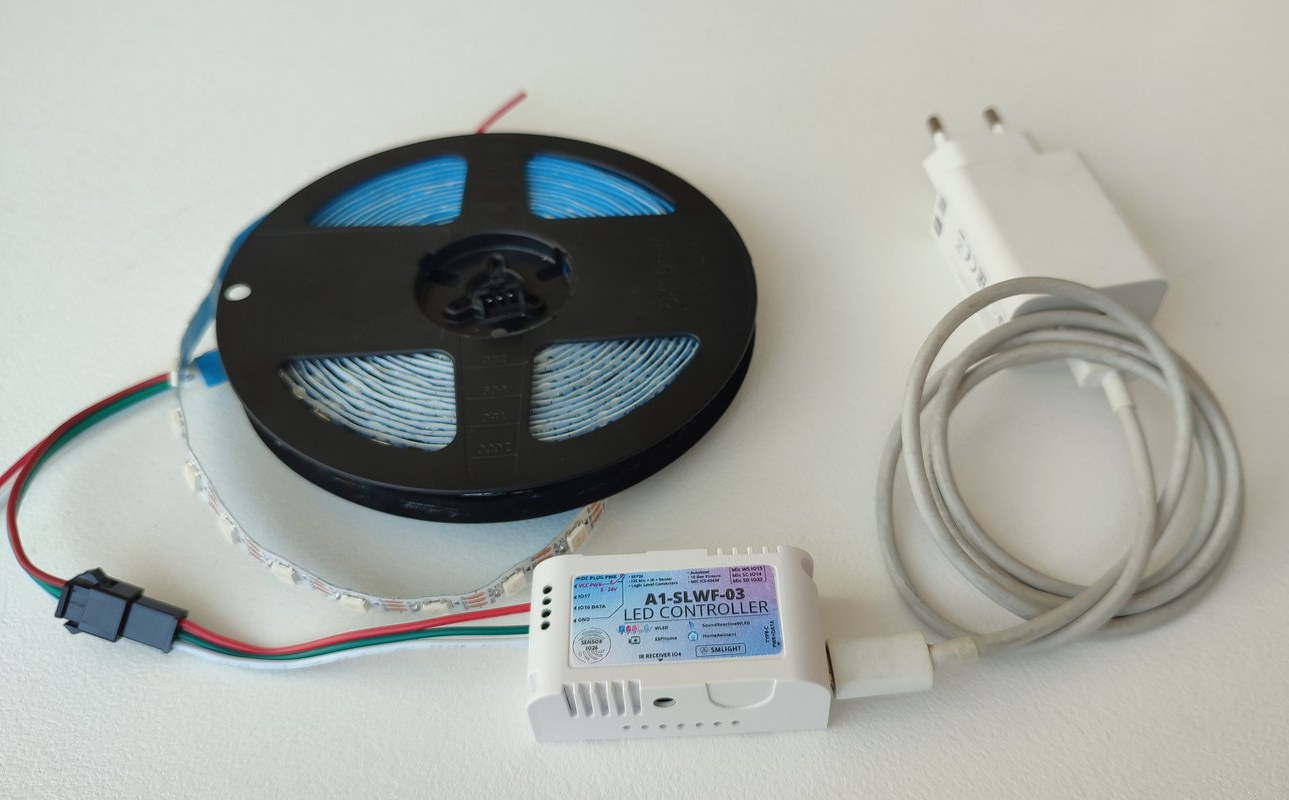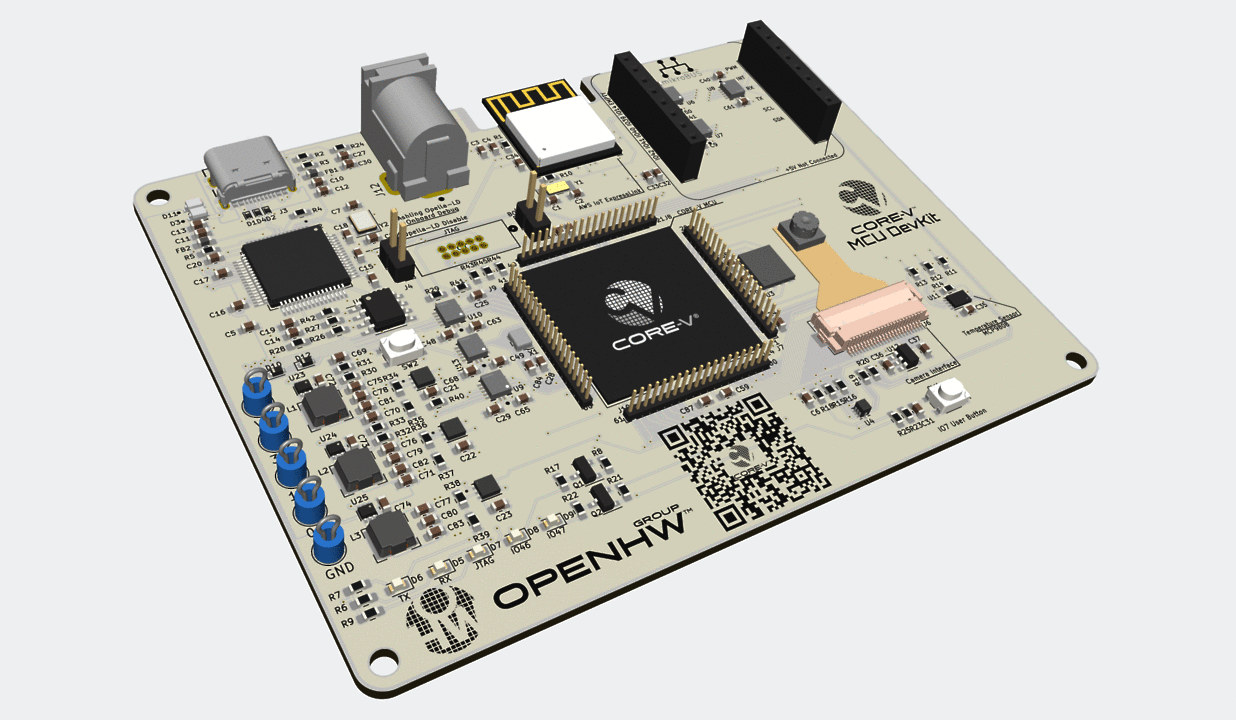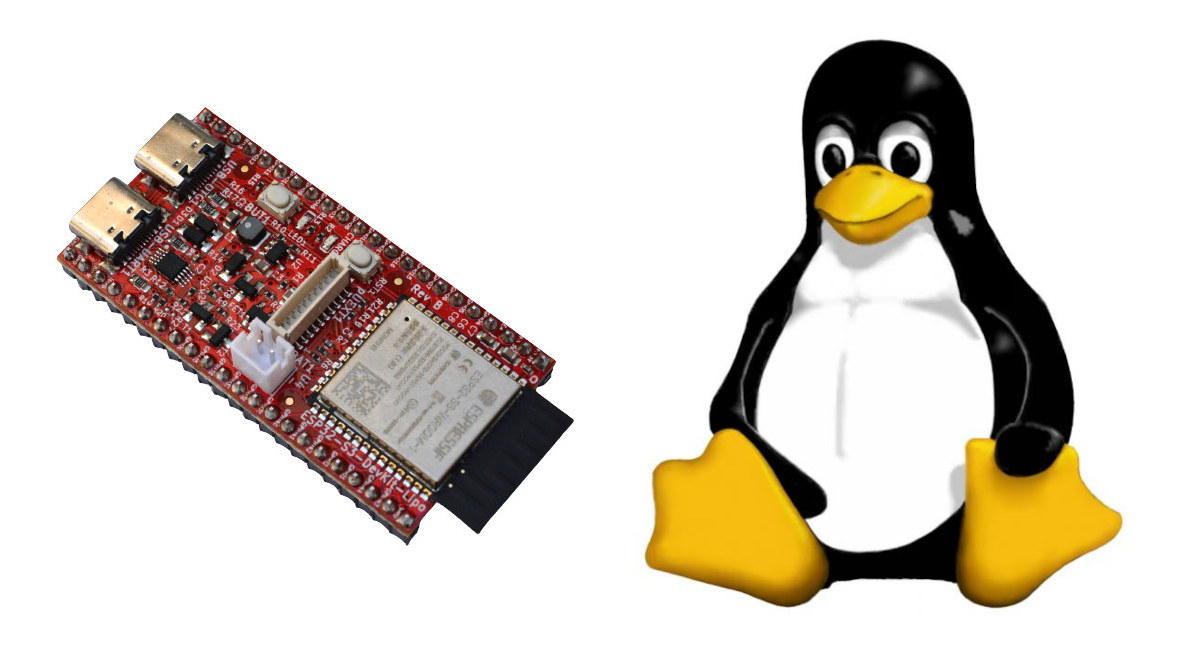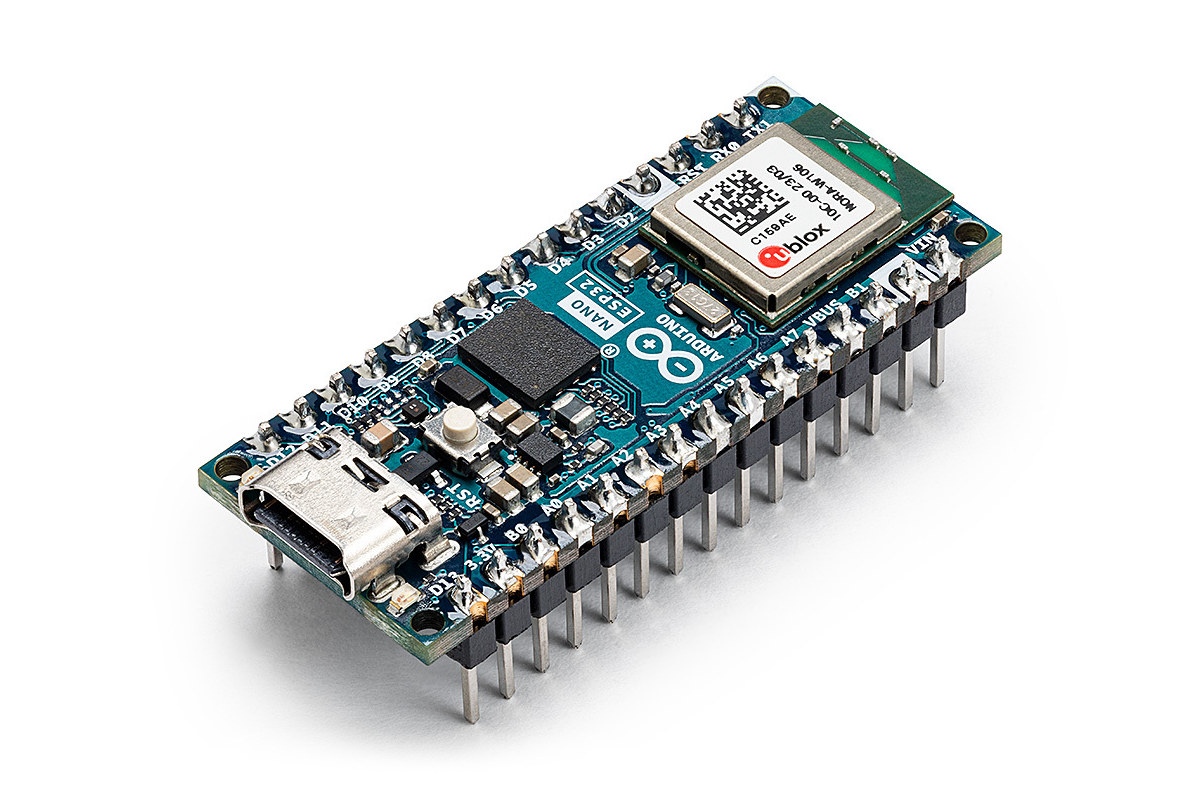Seeing the lack of privacy-focused video doorbells on the market, Tristam (aka ThatGuy) decided to design his own doorbell with an ESP32-CAM board purchased from Amazon and flashed with ESPHome open-source firmware for easy integration with Home Assistant so there’s no need to rely on third-party cloud services. The DIY design also comes with other off-the-shelf parts with a momentary push button, a 10kΩ resistor, an RGB LED ring light, M2.5 brass inserts and screws, and a 10-meter micro USB cable all of which can be purchased from Amazon or another shop. He also needed eSUN white PETG filament to 3D print the custom plastic enclosure. The assembly requires two wires to the push button for 3.3V and GPIO 14 pulled to the ground with the 10k Ohm resistor and three wires to the RGB LED ring (5V, GND, GPIO15). Tristam notes the RGB LED ring is optional, and the […]
Lo-Fi ESP32-S3 board features LoRa module for low-power long-range connectivity (Crowdfunding)
SB Components’ Lo-Fi is an ESP32-S3 board equipped with a LoRa module for low-power long-range connectivity, and the company has also introduced two LoRa USB dongles with either Type-A or Type-C connectors. Lo-Fi specifications: Wireless module ESP32-S3-WROOM-1: SoC – ESP32-S3 dual-core LX7 microprocessor @ up to 240 MHz with Vector extension for machine learning, WiFi 4 & Bluetooth 5 LE/Mesh Memory – 8MB OSPI PSRAM Storage – 8MB QSPI flash PCB antenna Dimensions – 25.5 x 18.0 x 3.1 mm Unnamed LoRa module Tx power of up to 22dBm (160mW) adjustable by software Rx sensitivity of up to -138 dBm ISM bands – 433MHz, 868MHz, and 915MHz Range – Up to 5km range Data rates – 300 bps to 62.5 kbps RoHS compliance External LoRa antenna Display – 1.14-inch TFT display with 240×135 resolution USB – 1x USB Type-C port for programming and power Expansion – 2x 20-pin GPIO headers […]
myCobot Pro 600 Raspberry Pi 4-based robot arm supports 600mm working range, up to 2kg payload
Elephant Robotics has launched its most advanced 6 DoF robot arm so far with the myCobot Pro 600 equipped with a Raspberry Pi 4 SBC, offering a maximum 600mm working range and support for up to 2kg payloads. We’ve covered Elephant Robotics’ myCobot robotic arms based on Raspberry Pi 4, ESP32, Jetson Nano, or Arduino previously, even reviewed the myCobot 280 Pi using both Python and visual programming, and the new Raspberry Pi 4-based myCobot Pro 600 provides about the same features but its much larger design enables it to be used on larger areas and handles heavier objects. myCobot Pro 600 specifications: SBC – Raspberry Pi 4 single board computer MCU – 240 MHz ESP32 dual-core microcontroller (600 DMIPS) with 520KB SRAM, Wi-Fi & dual-mode Bluetooth Video Output – 2x micro HDMI 2.0 ports Audio – 3.5mm audio jack, digital audio via HDMI Networking – Gigabit Ethernet, dual-band WiFi […]
SunFounder Zeus Car Kit review – A fun toy and Arduino learning tool
SunFounder Zeus Car Kit is an Arduino UNO and ESP32 Cam-based educational kit for children (and adults) that can be used to learn more about electronics, robotics, and programming. It’s a car comprised of four 6cm Mecanum wheels for omnidirectional motion and various sensors that can be controlled with an Android app enabling first-person view (FPV) thanks to the built-in camera. The company sent us a Zeus Car Kit for review and evaluation, and after assembly, we’ll use it in “Play Mode”, or in other words a toy that basically works out of the box, before checking out the “Programing Mode” and related Arduino tutorials to evaluate it’s educational potential. Zeus Car Kit Unboxing The kit comes in a nice retail package which highlights some of the capacities of the kit: FPV, Omnidrive, AI vision, compass, IR control, APP control, and RGB lights. The package itself contains four more boxes […]
Home Assistant-compatible 5-24V LED strip controller ships with Sound Reactive WLED firmware
SMLIGHT A1-SLWF-03 is a Home Assistant-compatible addressable RGB LED strip controller based on an ESP32 WiFi and Bluetooth microcontroller that supports 5V to 24V LED strips. The unit is equipped with a built-in digital microphone used by the Sound Reactive WLED firmware to make the RGB LED strip follow the rhythm and tempo of the music, an IR receiver, and a sensor button. SMLIGHT A1-SLWF-03 specifications: SoC – ESP32 dual-core microcontroller with WiFi 4, Bluetooth 4.2/5.x, and 16Mbit flash 4-pole terminal block for RGB LED strips Supported strips – WS2812B, WS2811, WS2813, WS2815, APA102, LPD8806, WS2801, SK9822. Voltage Range – 5-24V DC Up to 2,000 LEDs are supported at 35 fps with two outputs or 3,000 LEDs at 25 fps with two outputs (about 33 to 50-meter LED strips with 60x LEDs per meter) Multiple A1-SPWF-03 controllers can be synced together for controlling even more LED strips. USB – 1x […]
CORE-V MCU Devkit features open-source 32-bit RISC-V core, Amazon AWS IoT connectivity, Mikrobus expansion, VGA camera
The CORE-V MCU DevKit is an open-source hardware board based on the CORE-V microcontroller featuring the open-source OpenHW CV32E40P0 RISC-V MCU core and a Quicklogic ArticPro 2 eFPGA. The board offers wireless connectivity to Amazon AWS through an ESP32-C3 AWS IoT ExpressLink module, a MikroBus connector for expansion, a VGA camera module, JTAG and serial debugging, as well as a temperature sensor and a few buttons. The development kit can be powered by its USB Type-C port (5V) or a DC jack taking 5V to 18V DC. CORE-V MCU devkit specifications: Microcontroller – CORE-V MCU OpenHW CV32E40P RISC-V processor core (in-order 4-stage RISC-V RV32IMFCXpulp CPU based on RI5CY from PULP-Platform) with 512KB SRAM, boot ROM Quicklogic ArticPro 2 eFPGA Storage – 4MB QSPI flash Wireless – Espressif AWS IoT ExpressLink Module for AWS IoT cloud interconnect Camera – Himax HM01B0 ultra-low-power QVGA (320×240) CMOS image sensor as found in the […]
12 Euros ESP32-S3-DevKit-LiPo board runs Linux 6.3
Olimex ESP32-S3-DevKit-LiPo is a new open-source hardware ESP32-S3 board with 8MB flash, 8MB PSRAM, as well as LiPo battery and JTAG support that can run Linux 6.3, or the more traditional Arduino or MicroPython firmware. The board is based on the ESP32-S3-WROOM-1-N8R8 module, features two USB-C ports for power, programming, and JTAG debugging, plenty of expansion with two rows of I/Os plus a pUEXT connector, Reset and Boot buttons, and a couple of LEDs. ESP32-S3-DevKit-LiPo specifications: Wireless module – Espressif ESP32-S3-WROOM-1-N8R8 with SoC – ESP32-S3 dual-core LX7 microprocessor @ up to 240 MHz with Vector extension for machine learning, WiFi 4 & Bluetooth 5 LE/Mesh Memory – 8MB OSPI PSRAM Storage – 8MB QSPI flash PCB antenna Dimensions – 25.5 x 18.0 x 3.1 mm USB 1x USB Type-C OTG port also used for JTAG/Serial 1x USB Type-C port for USB-serial programming and power Expansion 2x 22-pin GPIO headers pUEXT […]
ESP32-S3 based Arduino Nano ESP32 board supports Arduino and MicroPython programming
The Arduino Nano ESP32 is an ESP32-S3-based WiFi and Bluetooth microcontroller board designed for IoT applications for hobbyists and enterprise use cases. The new Nano board comes with 8 MB PSRAM and 16 MB flash storage and can be programmed with either the Arduino or MicroPython languages. It’s not the first ESP32 board from Arduino, as the Nano RP2040 Connect pairs a Raspberry Pi RP2040 MCU with an ESP32 module from u-Blox and the just-released Arduino UNO R4 WiFi marries a Renesas RA4M1 Arm Cortex-M33 MCU with an ESP32-S3-MINI-1 module. But the Arduino Nano ESP32 is different since it’s the first ESP32 board from Arduino where the Espressif chip is the only microcontroller onboard and handles both wireless connectivity and GPIOs. Arduino Nano ESP32 specifications: Wireless module – u-Blox NORA-W106-10B with MCU – ESP32-S3 dual-core Xtensa LX7 microcontroller @ up to 240 MHz with vector extensions, 512KB SRAM, 384KB ROM, […]


